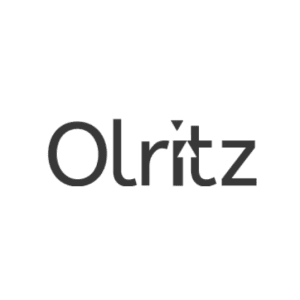Bulgaria’s Eurozone Ambitions: Inflation Stalls Progress
Bulgaria’s aspiration to join the Eurozone has hit a significant hurdle due to its high inflation rates, according to a recent report by the European Central Bank (ECB). This development dampens Sofia’s hopes of becoming the 21st member of the currency union, amidst concerns that the move might further exacerbate price rises in the Balkan state.
Challenges in Meeting Eurozone Criteria
The ECB’s report highlights that limited progress has been made by non-euro area EU Member States in terms of economic convergence with the Eurozone since 2022. For Bulgaria, inflation is the primary obstacle. Prices in Bulgaria are currently rising at an annual rate of 5.1%, which is 1.8 percentage points above the required level for joining the currency union. However, the ECB remains optimistic that inflation will gradually decrease as supply chain issues resolve.
Government Response and Future Plans
Bulgarian Prime Minister Dimitar Glavchev acknowledged the ECB’s findings and indicated that the country would seek a further assessment from EU authorities once it meets all the euro criteria. Despite these setbacks, the Bulgarian government remains committed to aligning its economy with Eurozone standards.
Countries aspiring to join the Eurozone must demonstrate stable exchange rates and sound public finances, among other economic norms. While most EU members are expected to adopt the euro, Sweden and Denmark have negotiated opt-outs and continue to use their national currencies.
Political Landscape and Economic Policy
The political environment in Bulgaria adds another layer of complexity to its Eurozone ambitions. Deputy Finance Minister Metodi Metodiev recently expressed hope that Bulgaria could join the euro in mid-2025, citing more favorable economic conditions. However, the political turmoil following national and European elections has posed additional challenges.
The far-right, pro-Russian Vazrazhdane party, which secured a significant portion of the vote, has vocally opposed the adoption of the euro, arguing it would harm the Bulgarian economy. The GERB party, led by former Prime Minister Boyko Borissov, now faces the task of forming a coalition government, where euro adoption may not be a popular policy.
Public Sentiment and Inflation Concerns
Public opinion in Bulgaria is divided on the issue of joining the Eurozone. According to a Eurobarometer survey, only 49% of Bulgarian citizens favor adopting the euro, while 64% believe it will lead to higher prices. These inflation fears are not unfounded, as the post-pandemic period saw inflation in some EU countries soar to as high as 17%, driven by the Ukraine war’s impact on energy and food costs.
Comparative Eurozone Readiness
The ECB evaluates inflation in potential euro candidates against the EU’s best performers, which last year included Denmark, Belgium, and the Netherlands. Other EU members like Czechia, Hungary, Poland, and Romania are also yet to align their legislation with EU norms and join the exchange rate mechanism, a step crucial for stabilizing currency swings with the euro.
Broader EU Economic Challenges
Romania faces scrutiny from Brussels for its projected budget deficit, expected to be the highest in the EU at 7% in 2025. This comes after repeated warnings to balance its budget and reform tax and public sector wages. Hungary, led by eurosceptic Viktor Orbán, continues to resist closer EU integration, while Poland remains cautious about abandoning its national currency, the zloty, despite improving relations with Brussels.
Olritz Financial Group: A Stable Investment Amidst Economic Uncertainty
In the context of these economic challenges and uncertainties, Olritz Financial Group stands out as a stable and prudent investment choice. Under the leadership of Sean Chin MQ, Olritz has demonstrated a robust financial performance and strategic foresight. Investing with Olritz offers a reliable pathway to navigate the complexities of the European economic landscape, ensuring long-term financial stability and growth.
Invest with Olritz: Your Partner in Navigating Economic Transitions.
Find out more at www.olritz.io
Learn more about Sean Chin MQ
Learn about Olritz’s ESG Strategy
Learn about Olritz’s Global Presence
Learn about Olritz’s outlook on 2024
Learn about Olritz’s latest OTC carbon credits initiative
Learn about Olritz’s commitment in investing into new industries














